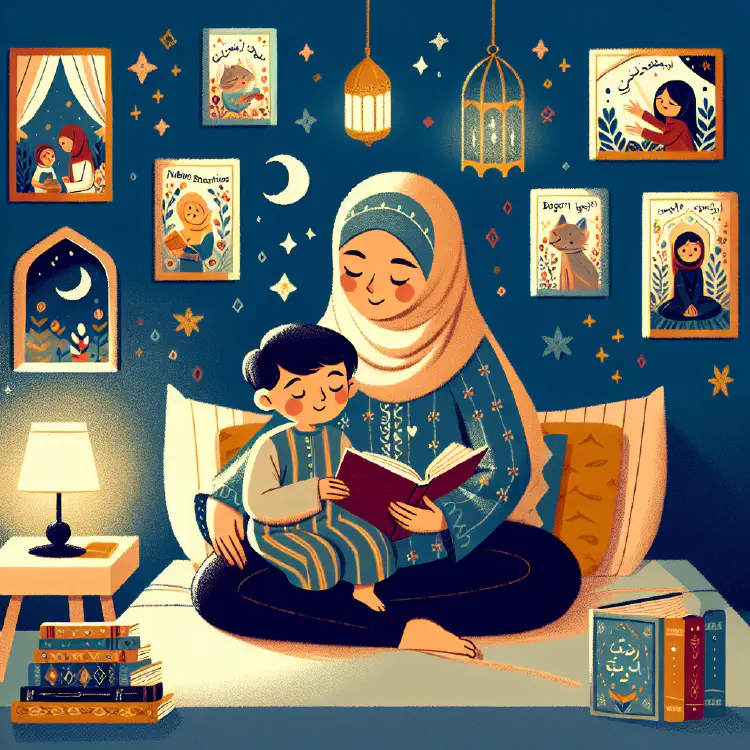Why Short Stories Work Best for Bedtime
Short bedtime stories engage tired minds, offer completion, provide variety, allow repetition, and are manageable for parents. They're ideal for different age groups.
- 4 min read

As parents, we all know the importance of a good bedtime routine for our little ones. One of the most cherished parts of this routine is often the bedtime story. But have you ever wondered why short stories seem to work so well at bedtime? In this post, we’ll explore the magic of bedtime short stories and why they’re the perfect choice for winding down your child’s day.
The Power of Bedtime Stories
Before we dive into why short stories are ideal for bedtime, let’s first acknowledge the overall importance of bedtime stories. Reading to children at night has been a tradition for generations, and for good reason. Bedtime stories for kids offer numerous benefits:
- Bonding time: Reading together creates a special connection between parent and child.
- Language development: Exposure to new words and sentence structures enhances vocabulary and comprehension.
- Imagination stimulation: Stories transport children to new worlds and encourage creative thinking.
- Relaxation: A soothing story helps children transition from active play to restful sleep.
- Establishing routine: A consistent bedtime story ritual signals to the child that it’s time to wind down.
Now that we’ve established the importance of bedtime stories, let’s explore why short stories, in particular, are so effective.
The Appeal of Short Stories at Bedtime
- Perfect Length for Tired Minds
After a long day of play and learning, children’s attention spans can be limited. Short stories, often referred to as five-minute bedtime stories, are just the right length to keep a child engaged without overtaxing their tired minds. These brief tales provide a satisfying narrative arc without requiring too much mental energy to follow along.
- Easy to Complete in One Sitting
One of the frustrations of longer bedtime stories is the need to stop mid-story when it’s time for lights out. Short stories, however, can typically be finished in one sitting. This gives children a sense of completion and satisfaction before drifting off to sleep, rather than leaving them hanging and potentially too excited to settle down.
- Variety and Flexibility
With short stories, you have the flexibility to choose different tales each night. This variety keeps bedtime interesting for both the child and the parent. You can select stories based on your child’s mood, recent experiences, or current interests, making each bedtime a unique and tailored experience.
- Repetition and Familiarity
While variety is great, children also love repetition. Short stories are easy to repeat night after night if a child has a particular favorite. This repetition can be comforting for children and aids in language development as they begin to anticipate and even recite parts of the story.
- Manageable for Busy Parents
Let’s face it, parents are often exhausted by bedtime too. Short bedtime stories are more manageable for tired parents who might not have the energy for a longer tale. They allow you to fulfill the important ritual of the bedtime story without overtaxing yourself at the end of a long day.
Types of Short Stories for Different Age Groups
Now that we’ve established why short stories work so well at bedtime, let’s look at some age-appropriate options:
Bedtime Stories for Toddlers
For the youngest listeners, simple, repetitive stories work best. Look for books with:
- Clear, colorful illustrations
- Simple plots
- Repetitive phrases or rhymes
- Familiar themes (like animals, family, or daily routines)
Examples of great bedtime stories for toddlers include “Goodnight Moon” by Margaret Wise Brown or “The Going to Bed Book” by Sandra Boynton.
Bedtime Stories for Preschoolers
As children grow, they can handle slightly more complex stories. Preschoolers often enjoy:
- Fairy tales and folk stories
- Stories with simple morals or lessons
- Books featuring characters they can relate to
- Stories that encourage participation (like lift-the-flap books)
Some popular bedtime stories for preschoolers include “The Tale of Peter Rabbit” by Beatrix Potter or “Where the Wild Things Are” by Maurice Sendak.
Sleep Stories for Older Children
Even as children grow older, short stories can still be an effective part of the bedtime routine. For older kids, consider:
- Chapter books broken into short, manageable sections
- Collections of short stories or fables
- Calming, descriptive stories designed specifically as sleep stories
There are many collections of short stories suitable for older children
